American policy planners for Afghanistan would do well to take note of developments in Egypt, where last week the army deployed in Cairo to fill the vacuum created by the disappearance of the hated police. To my mind, there’s a clear parallel with Afghanistan, where the notoriously corrupt police are likewise hated, while the army enjoys a similar — if not as historically established — reputation as the Egyptian military. But the difficulty in Egypt in finding an acceptable transition scenario to the current unrest suggests the limitations of a society in which the military is the only credible institution […]
Africa Archive
Free Newsletter
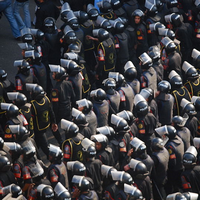
Over the weekend, Wikistrat — a Tel Aviv-based technology start-up for which I serve as chief analyst — gathered a group of Israeli and U.S. geostrategists, myself included, to take part in an online scenario-generating drill in response to the ongoing protests in Egypt. Our goal was to work up four feasible pathway trees along which events could develop — two favorable to the Egyptian people, two favorable to the Egyptian regime — and then present them online to interested parties for feedback and voting. The exercise was an attempt to harness the Web 2.0’s wisdom of the crowd for […]

The recent events in Tunisia have reverberated across the Middle East and North Africa, but they have found particular resonance in Egypt, where anger and frustration with President Hosni Mubarak’s government has escalated considerably over the past year. The violence, corruption and media censorship that accompanied last November’s parliamentary elections severely damaged the government’s credibility. Exacerbating this general frustration is the expectation that Mubarak’s son, Gamal, will succeed him and simply continue the status quo. In this week’s demonstrations, which saw Jan. 25 renamed Youm al-Ghadab, or Day of Wrath, protestors have indeed directed some of their anger at the […]
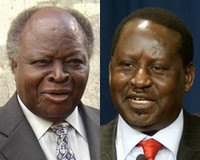
BOMET COUNTY, Kenya — Last month, when Luis Moreno-Ocampo, chief prosecutor for the International Criminal Court (ICC), requested summonses for six individuals on charges related to Kenya’s 2007-2008 post-election violence, a majority of Kenyans applauded. In a country with a deep-rooted culture of impunity, many citizens had given up on domestic justice to deal with those responsible for the violence. On the eve of Ocampo’s announcement, one poll found that 85 percent of Kenyans supported the ICC process, launched after Kenya’s government failed to establish a local tribunal for key perpetrators of the violence. Yet here in Kenya’s Rift Valley […]
Predicting whether the outpourings of popular disaffection sweeping the Arab world will continue to spread or result in real revolutionary change is a mug’s game. There’s been a change in tone among regional experts from, “Not a chance,” to, “Not likely, but this feels different.” But this kind of phenomenon is by its nature unpredictable, otherwise tyrants and despots would either head it off at the pass or know exactly when to pack their bags and head for the border. That said, everyone knew that in the long term, these regimes were not sustainable. What is now becoming obvious is […]
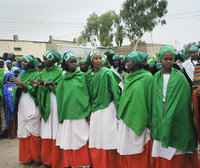
Nearly 20 years ago, Somaliland, a Florida-sized region of northeast Somalia once known as British Somaliland, declared its independence from Somalia. In the years since, Somaliland has emerged as a stable, democratic state that provides a measure of international security in a region overrun with pirates and transnational terrorists. Yet, no state or international body recognizes Somaliland’s independence. Instead, the international community is content with the fiction that Somalia remains a unified state. Denying Somaliland recognition will likely result in its eventual collapse and the expansion of the chaos, instability and international insecurity that characterizes Somalia. To prevent this eventuality, […]
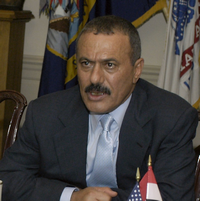
The fall of Tunisia’s President Zine el-Abidine Ben Ali is the latest reminder of how difficult it can be to encourage “friendly autocrats,” in the Middle East and throughout the world, to undertake reforms. It’s likely that, in light of Ben Ali’s fate, Yemen’s President Ali Abdullah Saleh is reassessing the advice that Secretary of State Hillary Clinton gave him during her visit earlier this month about moving ahead with political liberalization. But policymakers in Washington are apprehensive as well. Ben Ali’s government was often described as a “liberal autocracy,” where the state propagated a version of Islam more compatible […]
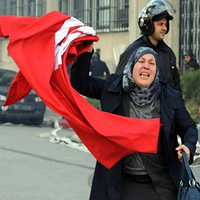
When street protests succeeded in putting an end to the 23-year dictatorship of Tunisia’s President Zine El Abidine Ben Ali, the world watched in astonishment. Practically no one had anticipated such a rapid turn of events. To be sure, the expectation that despotic Arab regimes will ultimately fall is widespread. But Tunisia, circa 2011, seemed hardly the place or the time for such a dramatic and transformative uprising. If it could happen in Tunisia, the cry went up throughout the Arab world, why not in our countries? Tunisia’s breathtaking Jasmine Revolution brought to mind the collapse of communism in Eastern […]
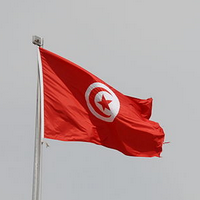
From the moment the first cell-phone videos of balaclava-clad young men sprinting away from police gunfire began to travel across cyberspace a few weeks ago, the mounting social unrest in Tunisia has caught many by surprise. Even longtime observers have had difficulty explaining how one of North Africa’s most prosperous and, arguably, most socially stable countries became a powder keg of political, economic and social fury. “I thought it could happen, but I didn’t believe it would happen so suddenly,” said Abdelwahab Hechiche, a political scientist at the University of South Florida who engaged in political activism for Tunisian independence […]
Well, it seems like I picked a bad week to minimize the effectiveness of social media as tools for organizing political protest against authoritarian regimes. In all fairness to both sides of the discussion, very few observers are arguing that social media alone can topple tyrants, and I was not saying that social media can not help in that effort. But proponents of social media as primary news and information sources during such events are likely to take comfort from the week’s events in Tunisia. Pending more thorough analysis, I still think that would be premature, not only because it’s […]
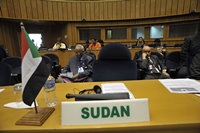
Although the referendum in South Sudan appears to be occurring without major incident, the main challenges lie ahead on the way to an independent South Sudan, the universally expected outcome of the voting and subsequent six-month transition period. The referendum was a key component of the 2005 Comprehensive Peace Agreement (CPA) that ended decades of conflict between the Sudan People’s Liberation Movement (SPLM) based in the South, and the Sudanese government in Khartoum, led by Omar Hassan al-Bashir, who seized power in a coup in 1989. Unfortunately, the CPA and subsequent rounds of talks have failed to resolve several important […]
I had the pleasure of participating on France 24’s panel discussion program, The World this Week, on Friday. The other guests were Matthew Saltmarsh of the IHT, Paul Taylor of Reuters, and Régis Le Sommier of Paris Match, and the topics we discussed included the Republican takeover of Congress, the situation in Côte d’Ivoire, and the protests in Tunisia and Algeria. Part one can be found here. Part two can be found here.
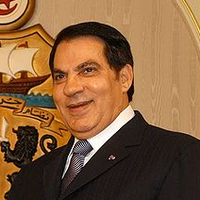
The Middle East and North Africa welcomed the New Year with a rare phenomenon: protests in an arc stretching from Algeria to Kuwait, directed against repressive regimes at home rather than a foreign power. The protests are a rare outpouring of pent-up frustration and anger at discrimination and failed economic and social policies as well as corruption in a region that is governed by authoritarian governments intolerant of public criticism. It is too early to conclude that the protests signal a milestone after which Middle Eastern population groups no longer quietly endure repression and economic deprivation and instead increasingly and […]
The United Nations hopes to send between 1,000 and 2,000 more peacekeepers to Ivory Coast in the next few days as at least seven more people were killed in ethnic clashes, UN peacekeeping chief Alain Le Roy said on Wednesday. The clashes have occurred as President Laurent Gbagbo has refused to resign after a disputed election in the country.
I’ve been thinking a lot recently about the changing nature of power in the emerging geostrategic landscape, and one theme that I find myself returning to repeatedly is that of hub states. The idea being that in an increasingly integrated world, the best way to advance strategic interests is to maximize connectedness. But although connectedness is in itself valuable, some kinds of connectedness are more strategically valuable than others. So the key is to be a node that is highly integrated not just within the network, but within the right parts of the network. Now, like the old gag about […]
